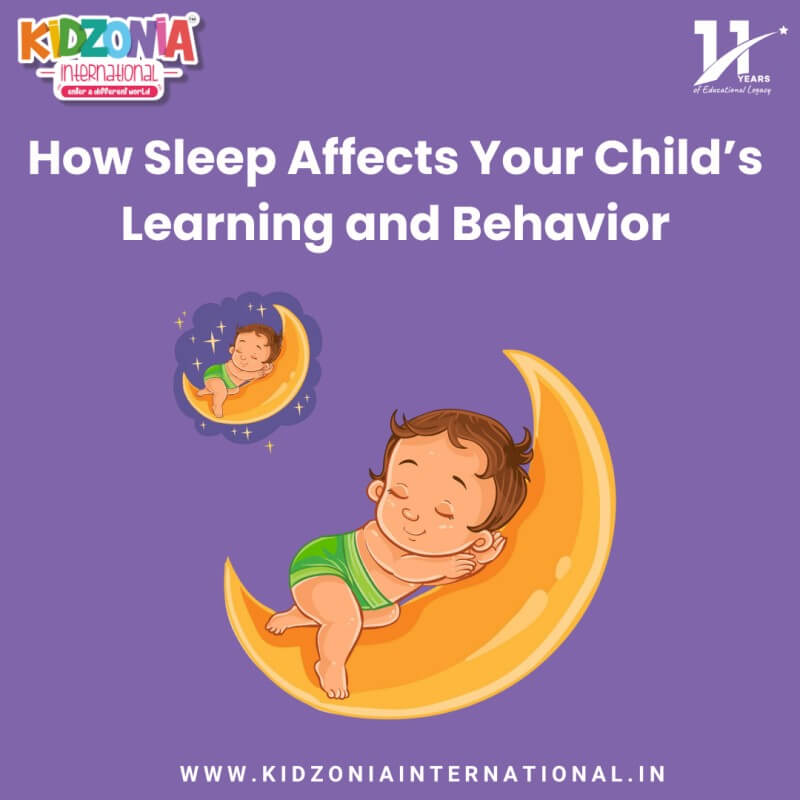How Sleep Affects Your Child’s Learning and Behavior
Sleep is a fundamental pillar of health, and for children, it plays a crucial role in their ability to learn, focus, and regulate their emotions. As a parent, you’ve likely noticed how a poor night’s sleep can turn your child into a different person—cranky, unfocused, and prone to meltdowns. But beyond these immediate effects, sleep has a profound impact on your child’s long-term learning and behavior. In this blog, we’ll explore how sleep influences your child’s ability to thrive in school and at home, and what you can do to ensure they’re getting the rest they need.
The Science Behind Sleep and Learning
During sleep, the brain undergoes revitalization. It’s during sleep that the brain processes and consolidates information from the day, turning short-term memories into long-term knowledge. This process is essential for learning, as it helps children retain what they’ve learned in school and apply it in new situations.
Children cycle through different stages of sleep, each serving a unique purpose:
-
Deep sleep is critical for physical restoration and growth, helping the body recharge for the next day.
-
REM sleep (rapid eye movement) is when the brain is most active, processing emotions and consolidating memories. This stage is particularly important for learning and cognitive development.
When children don’t get enough sleep, their brains miss out on these vital processes. The result? A foggy mind that struggles to focus, retain information, or solve problems effectively.
Sleep Deficiency: Its Influence on Learning and Conduct
The effects of sleep deprivation on children are far-reaching. When kids don’t get enough rest, it shows up in their ability to learn and behave. Here’s how:
-
Attention problems: A sleep-deprived child may have trouble sitting still, following instructions, or staying on task. This can make it hard for them to absorb new material in the classroom.
-
Memory issues: Without adequate sleep, the brain struggles to consolidate memories, making it tougher for children to remember lessons or instructions.
-
Emotional dysregulation: Lack of sleep can leave kids more irritable, impulsive, and prone to emotional outbursts. They may struggle to handle frustration, leading to tantrums or arguments.
-
Behavioral challenges: Sleep deprivation can amplify hyperactivity or defiance, sometimes resembling symptoms of conditions like ADHD.
For instance, a child who hasn’t slept well might daydream during lessons, forget to complete homework, or snap at classmates. At home, small frustrations—like losing a toy—could spiral into a full-blown meltdown.
Recommended Sleep Guidelines by Age
To support your child’s learning and behavior, they need the right amount of sleep for their age. For advice on this topic, consult the American Academy of Pediatrics' guidelines:
These ranges account for individual differences, but consistently falling below them can hinder your child’s ability to function at their best.
Tips for Improving Your Child’s Sleep
Helping your child establish healthy sleep habits is a game-changer for their learning and behavior. Here are a few actionable approaches:
-
Set a consistent schedule: Keep bedtime and wake-up times the same, even on weekends, to regulate your child’s internal clock.
-
Create a calming routine: Wind down with activities like reading a story, taking a warm bath, or listening to soft music to signal it’s time for rest.
-
Optimize the bedroom: Make it dark, quiet, and cool. To create a more conducive sleep environment, consider using light-blocking window coverings or a device that generates consistent ambient sound.
-
Limit screens before bed: The blue light from phones, tablets, or TVs can disrupt sleep by reducing melatonin production. To promote better sleep, avoid devices for the hour leading up to bedtime.
-
Encourage daytime activity: Physical play during the day promotes better sleep, but avoid intense exercise right before bed.
-
Lead by example: Show your child the value of sleep by prioritizing your own rest.
Conclusion: Sleep Is a Necessity, Not a Luxury
Sleep isn’t just a break—it’s a critical ingredient in your child’s ability to learn, grow, and manage their emotions. By ensuring they get enough rest and building healthy sleep habits, you’re setting them up to focus in school, handle challenges, and thrive socially.
If your child is struggling with concentration, behavior, or schoolwork, take a closer look at their sleep. A few simple changes could unlock their full potential, both in the classroom and at home. A well-rested child is a child ready to take on the world!





